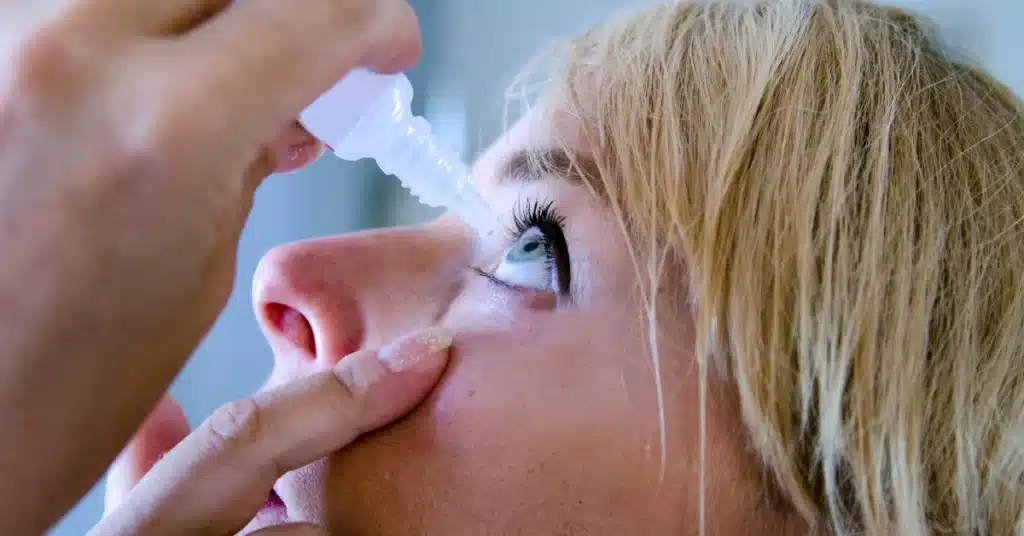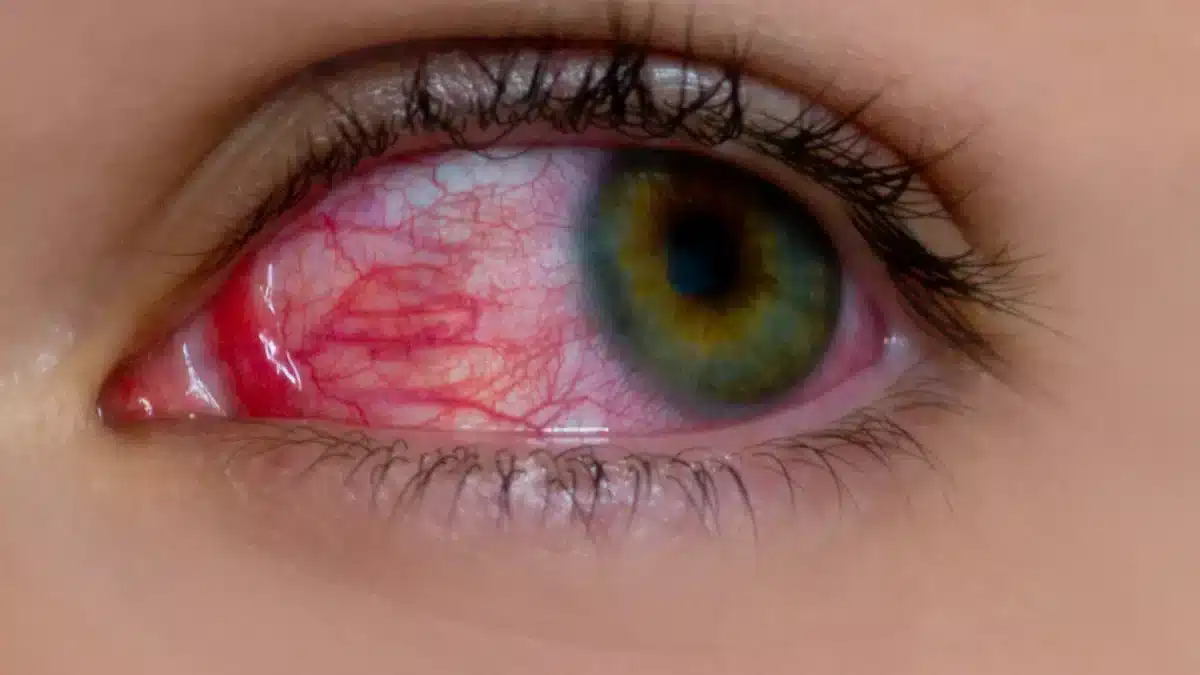Eye allergies like Conjunctivitis, a common condition that affects millions worldwide, can cause pain with symptoms such as itching, redness, and tearing.
A lot of people wonder, how to treat eye allergies or do these allergies go away on their own?
A healthy lifestyle, over-the-counter (OTC) medicines, prescription medicines, and immunotherapy are some treatments for eye allergies.
This article will help you explore several eye allergy treatment to help improve your vision.
Treatment for eye allergies
Eye allergies can be treated with OTC or prescription medicines, immunotherapy, and non-pharmacological methods.
For long-term relief, it is important to personalize the treatment to your unique needs and the severity of your allergies.
In the following sections, we will look in depth at different treatment options
Prescription medicines
 Source: Syda_Productions
Source: Syda_ProductionsPrescription-based antihistamine eye drops may be required as a severe eye allergies treatment.
Patanol and Pataday are two well known prescription eye drops for eye allergies that can provide relief.
These medicines are very useful for treating moderate to severe itching and inflammation.
Consulting an eye care specialist is necessary to select the best prescription-based eye drops according to individual needs.
Over-the-counter medications
Over-the-counter antihistamine eye drops are one of the most extensively used and widely available eye allergies treatments.
OTC eye drops work by inhibiting histamines, the chemical responsible for causing allergic reactions.
Popular medicines include Zaditor and Alaway, which immediately relieve itching, redness, and tearing.
If symptoms persist, contacting a healthcare expert to adjust your dosage is critical.
Immunotherapy
Specialized allergen-specific immunotherapy treats severe ocular allergies. The immune system is gradually exposed to allergens to acquire tolerance.
Immunotherapy reduces pollen, dust mites, and pet dander allergy symptoms such as itching, red eyes, and watery eyes by desensitizing the immune system.
Immunotherapy works well as a long-term ocular allergy treatment option.
Discuss this treatment with an allergist or immunotherapy specialist to determine its suitability for your allergy.
Home remedies
Non-pharmacological ocular allergy treatments also work well.
These methods focus on lifestyle and environmental changes to reduce allergy exposure.
Practical actions include avoiding allergy triggers, maintaining eye cleanliness, and exploring dietary changes.
Avoiding dust, pet dander, and pollen helps create an allergen-free environment, thus reducing symptoms.
Non-pharmacological methods complement medical therapies and empower eye allergy sufferers to manage their symptoms.
These everyday habits can considerably reduce eye irritation.
Conclusion
Researching various eye allergy treatment is critical for people suffering from itching, redness, and tearing symptoms.
Several treatment options are available for different eye allergies, but the solution depends on the severity of your condition.
From prescription medications like Patanol and Pataday to widely available OTC eye drops like Zaditor and Alaway can all help in treating eye allergies.
Immunotherapy is a specific method that provides long-term treatment by desensitizing the immune system.
Non-pharmacological treatments, which mainly focus on lifestyle changes, offer other options for controlling eye allergies.
Consulting an eye specialist and using these methods can help people enhance their eyesight and health.
Frequently Asked Questions
What is the best treatment for allergic eyes?
Prescription antihistamine eye drops like Pataday or Patanol, over-the-counter solutions like Zaditor, and allergen-specific immunotherapy are all effective treatments for allergic eyes. Consultation with an eye care specialist is essential for personalized suggestions.
How long does an allergic reaction in the eye take to go away?
Ocular allergies generally last throughout the pollen season, lasting over a period of 4 to 8 weeks.
Can allergies affect just one eye?
Systemic allergies like hay fever affect both eyes. It’s possible for pollen or pet hair to briefly impair one eye, although this is highly unlikely to happen. One eye’s redness, swelling, or weeping is likely non-allergic.
What is a natural remedy for eye allergies?
Using warm compresses on the eyes helps relieve itching caused by allergies. A cold compress can effectively ease the itching caused by heated and puffy eyes.
How to tell the difference between eye infections and allergies?
Common symptoms of eye allergies and infections include redness, itching, burning sensations, and a transparent, watery discharge. Eye infections can cause ocular pain, a gritty sensation, and increased sensitivity to light.
When referencing outside resources, GoodrxMedicine always provides full citations. To learn more about the measures we use to maintain the quality of our content, please review our Content Information Policy.











